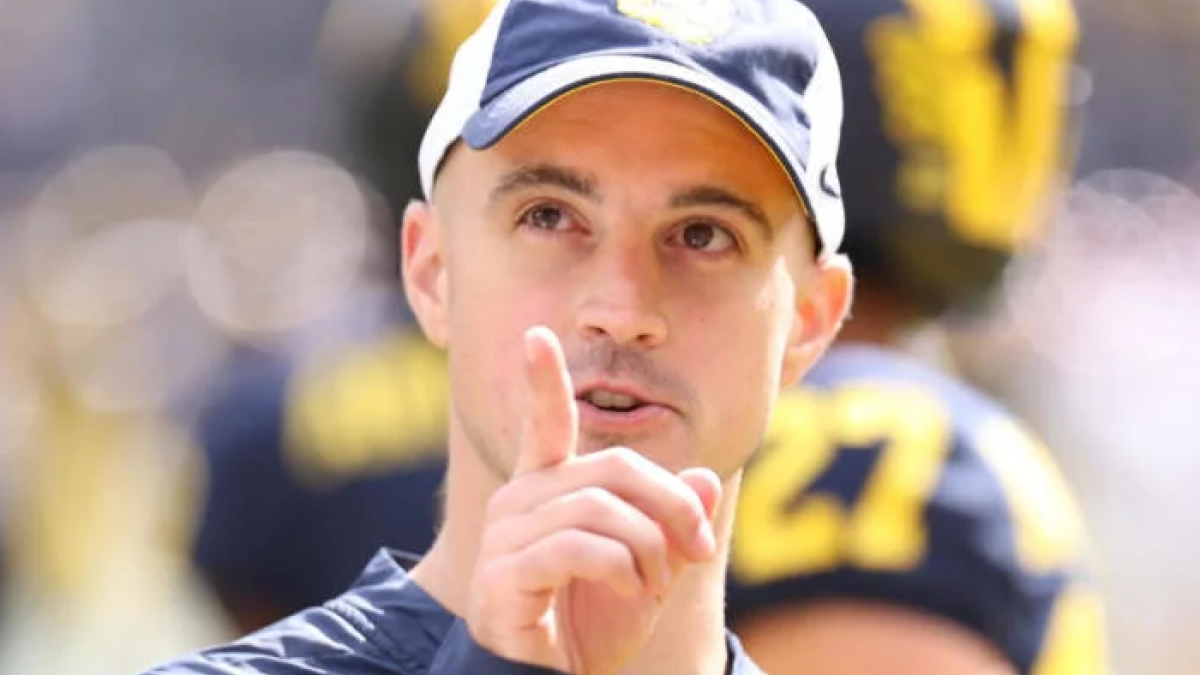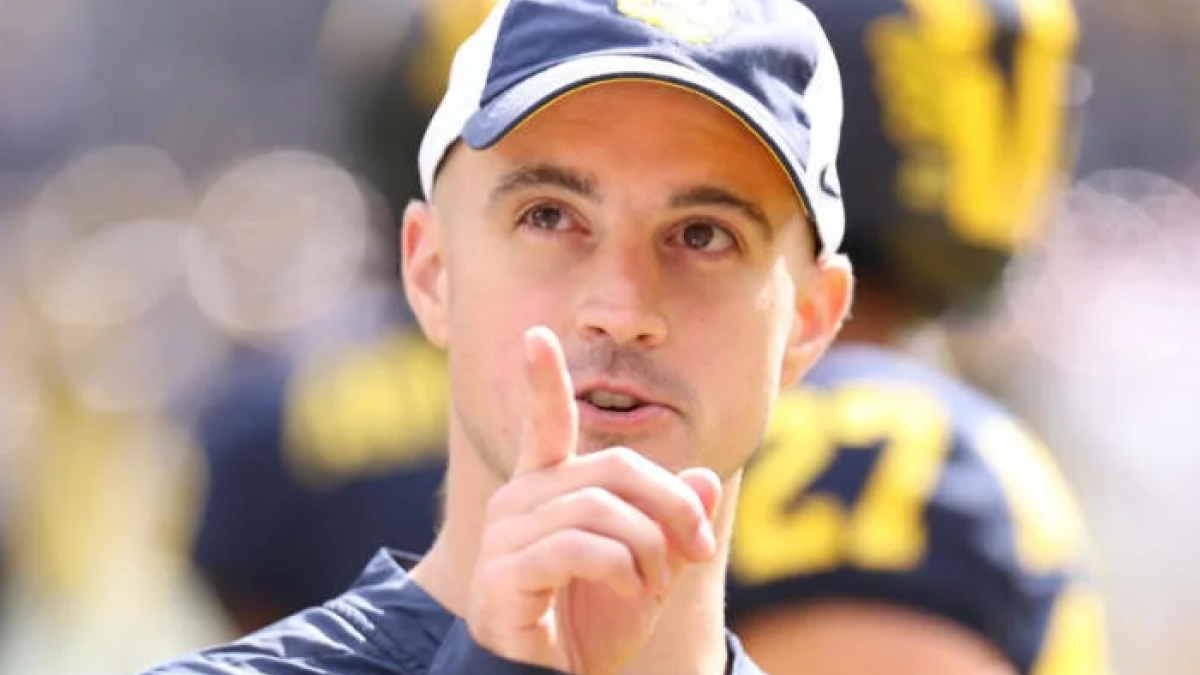The Lingering Shadow: An Analysis of the Connor Stalions Sign-Stealing Scandal and its Aftermath
Introduction
The Connor Stalions sign-stealing scandal has become one of the most contentious issues in recent college football history. What started as a series of whispers has grown into a full-blown controversy that has cast a long shadow over the University of Michigan’s 2023 national championship victory. The scandal has not only raised questions about competitive integrity but has also sparked a broader debate about the ethical boundaries of scouting and game preparation in modern football. This analysis explores the key players, the allegations, and the lasting impact of the scandal on Michigan and the wider college football community.
The Architect of the Scheme: Connor Stalions and His Methods
Connor Stalions, a former low-level recruiting analyst for the Michigan Wolverines, is at the center of the controversy. He is accused of orchestrating a sophisticated scheme to steal opponents’ play signals, a practice that, while not explicitly illegal, is widely considered unethical and a violation of fair play.
Stalions’ alleged methods were extensive and meticulously planned. Reports suggest he attended games of future Michigan opponents, recording their sideline signals. He then allegedly compiled detailed databases of these signals, which were used to decipher opposing teams’ play calls during games. The operation reportedly involved a network of individuals funded by Stalions to attend games and record signals, creating a sophisticated surveillance system.
The scale of the alleged operation is what truly set it apart. It was not merely a case of a coach picking up on a few tendencies; it was a systematic effort to gain an unfair competitive advantage through the surreptitious collection and analysis of proprietary information. This elevated the situation from a minor infraction to a major scandal.
The Accusations and Michigan’s Response
The NCAA launched an investigation into the allegations against Stalions and the Michigan program. The investigation focused on whether Stalions’ actions violated NCAA rules regarding scouting and unfair competitive advantages and whether Michigan coaches, including head coach Jim Harbaugh, were aware of or involved in the scheme.
Michigan initially suspended Stalions, who later resigned from his position. The university has mounted a vigorous defense against the NCAA’s allegations, accusing the organization of “grossly overreaching” and making “wildly speculative” accusations. Michigan’s strategy appears to be focused on disputing the NCAA’s interpretation of its rules and questioning the evidence presented against the program.
The university’s stance highlights the complexities of the situation. While the evidence against Stalions appears substantial, proving that the Michigan coaching staff was aware of and condoned his actions is a much higher hurdle. This legal and public relations battle is far from over, and the ultimate outcome could have significant implications for the future of the Michigan football program.
The Fallout: Impact on the Program and the Wider Football Community
The sign-stealing scandal has had a multi-faceted impact on the University of Michigan and the broader college football world.
Reputational Damage
The most immediate consequence has been the damage to Michigan’s reputation. The accusations have cast a shadow over the team’s on-field success, leading some to question the legitimacy of their achievements, particularly the 2023 national championship. Regardless of the NCAA’s final ruling, the scandal has tarnished the program’s image and raised questions about its ethical standards.
Coaching Changes and Uncertainty
The scandal has also led to instability within the coaching staff. Jim Harbaugh faced suspensions during the 2023 season due to the allegations. The uncertainty surrounding the coaching staff’s involvement has created a cloud of doubt over the program’s future.
Increased Scrutiny of Scouting Practices
The scandal has prompted a widespread reevaluation of scouting practices throughout college football. Coaches and administrators are now under greater pressure to ensure that their scouting activities remain within the bounds of NCAA rules and ethical guidelines. This has led to increased vigilance and a greater emphasis on transparency in scouting operations.
A Debate on the Ethics of Sign-Stealing
The scandal has reignited the debate about the ethics of sign-stealing in football. While some argue that it is simply a part of the game, others contend that it crosses the line when it involves the systematic and surreptitious collection of proprietary information. This debate is likely to continue for years to come, shaping the future of scouting and game preparation in the sport.
Rivalries Intensified
The scandal has further fueled already heated rivalries, particularly with Ohio State. Former Ohio State defensive end Jack Sawyer has been vocal in his criticism of Michigan, claiming that the Wolverines’ sign-stealing gave them an unfair advantage. These accusations have only intensified the animosity between the two programs and their fan bases.
Connor Stalions’ Perspective and the Netflix Documentary
Adding another layer of intrigue to the saga is the emergence of Connor Stalions himself. After maintaining relative silence in the immediate aftermath of the scandal, Stalions has begun to speak out, offering his perspective on the events and defending his actions. He has denied stealing signs, claiming that his efforts were focused on deciphering opponents’ signals through legitimate film study and analysis.
Stalions’ narrative is likely to be further explored in an upcoming Netflix documentary. The documentary promises to offer a behind-the-scenes look at the scandal from Stalions’ point of view, potentially shedding new light on the events and challenging the prevailing narrative. The documentary is likely to be a highly anticipated and controversial addition to the saga, further fueling the debate about the ethics of sign-stealing and the role of Connor Stalions in the controversy.
The High School Coaching Job
Despite the controversy, Connor Stalions has found a new role as a high school football coach in Detroit. This appointment has raised eyebrows, with some questioning whether it is appropriate for someone at the center of such a significant scandal to be mentoring young athletes. However, others argue that Stalions deserves a second chance and that his knowledge of football could be a valuable asset to the high school program.
The appointment highlights the complexities of judging individuals caught in the crosshairs of controversy. While Stalions’ actions at Michigan have been widely condemned, he has not been convicted of any crime, and some believe that he should be allowed to move on with his life. The debate over his high school coaching job is likely to continue as long as the sign-stealing scandal remains in the public consciousness.
Conclusion: A Lasting Legacy of Controversy
The Connor Stalions sign-stealing scandal is more than just a story about a rogue staffer and a football team pushing the boundaries of ethical behavior. It’s a reflection of the win-at-all-costs mentality that pervades modern sports, the ever-evolving landscape of competitive advantages, and the challenges of maintaining integrity in a high-stakes environment. The scandal has left an undeniable mark on the University of Michigan, tarnishing its reputation and creating a cloud of uncertainty around its future. It has also sparked a wider conversation about the ethics of scouting and game preparation in college football, prompting a reevaluation of existing rules and practices.
Even with Connor Stalions speaking out, the release of a documentary, and his move to high school coaching, the scandal’s lingering questions and unanswered narratives will continue to fuel debate and speculation for years. Ultimately, the true extent of the sign-stealing operation and the level of knowledge within the Michigan coaching staff may never be fully known. But the scandal has undoubtedly left a lasting legacy of controversy, serving as a cautionary tale for the entire college football community about the importance of upholding ethical standards and preserving the integrity of the game.












